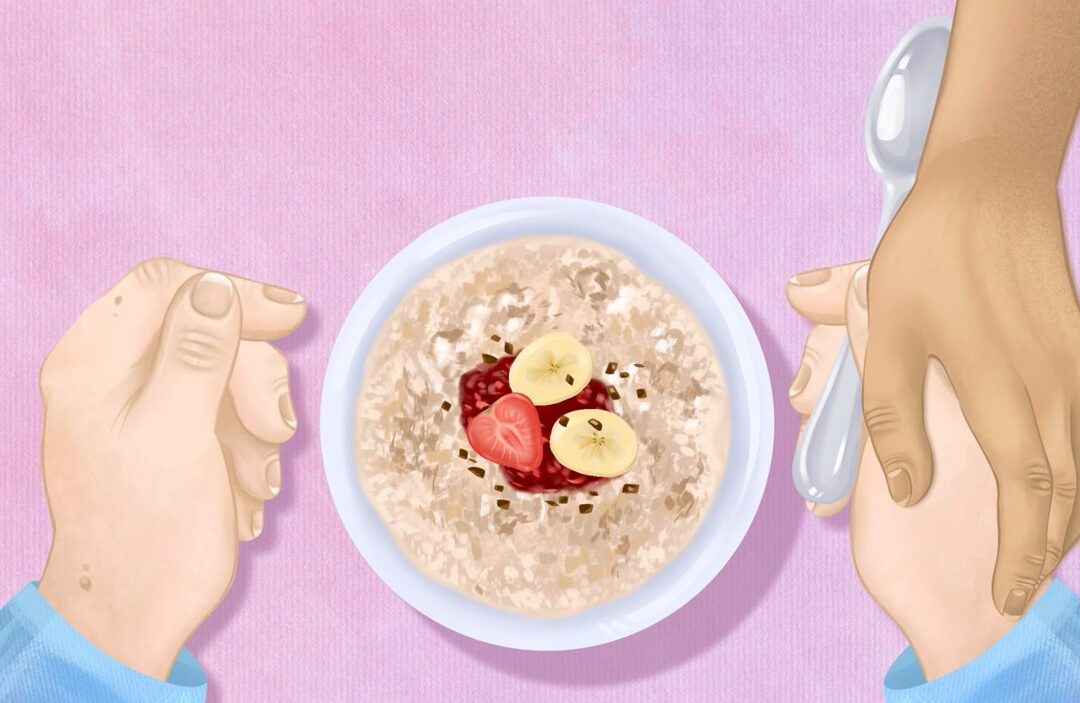A recipe for positive mealtimes: Supporting people with dementia
Blog

This blog is by ARC NENC Dementia Research Fellow, James Faraday
It includes links to an animation and video explaining the work. Both are excellent training tools for anyone who might be supporting someone with dementia.
My work is about helping care homes provide a positive experience at mealtimes for people living with dementia. Mealtimes are fundamental to health and quality of life. But some people living with dementia may experience challenges at mealtimes, such as problems recognising food and drink, or reduced range of tastes and preferences, or swallowing difficulties. So good mealtime care can be transformational to the experience of people with dementia living in care homes.
During my PhD, I worked with experts by experience to develop a training programme about good practice in mealtime care. The training communicates some key messages:
What is important at mealtimes? Five ingredients to remember…
And how do we bring it all together? Two guiding principles to follow…
The training programme has been tested in local care homes, and next we will explore how to roll it out more widely.
Sharing good practice in a clear and accessible way
We wanted to be able to share the key messages quickly.
So we decided to create an animation – just a small snapshot of the in-person training, but something that would be accessible by many more people.
We found a local not-for-profit design agency called Roots and Wings, and we worked with a small team to create an animation.
The team included care home managers, staff, residents, family carers, and other people involved in social care or with experience of the topic. We ran some workshops where we thought about how to distil the training content into a clear and accessible animation.
Link: A recipe for positive mealtimes
At the same time, we created a video to show how important it is for researchers and care homes to work together: Making a difference through dementia research
Thank you
Thanks so much to everyone who has been involved in this project; all the care homes, family carers, health and care staff and other people who have helped with developing the training, testing the training, and creating the animation.
If you have any questions or would like to learn more about this work, please do contact me on [email protected].
James Faraday receives support from the National Institute for Health and Care Research (NIHR) Applied Research Collaboration (ARC) North East and North Cumbria, Alzheimer’s Society and NIHR Three Schools’ Dementia Programme, and is funded through a Post-Doctoral Fellowship.